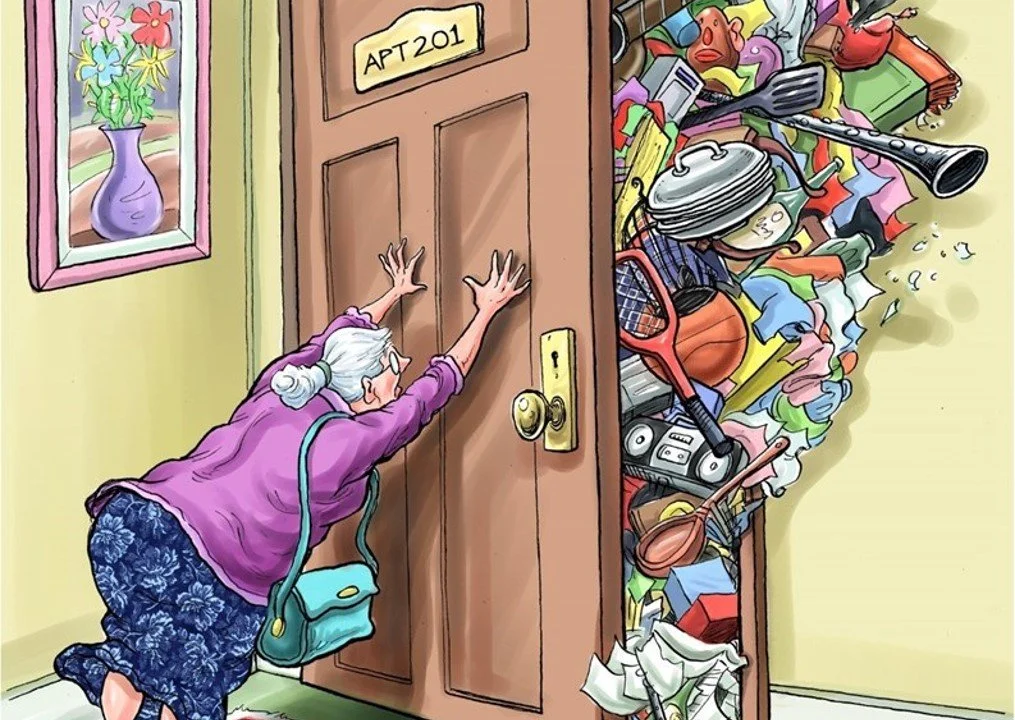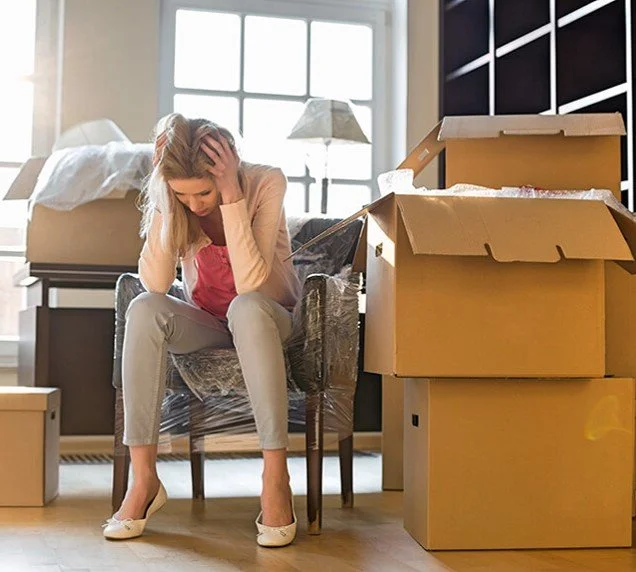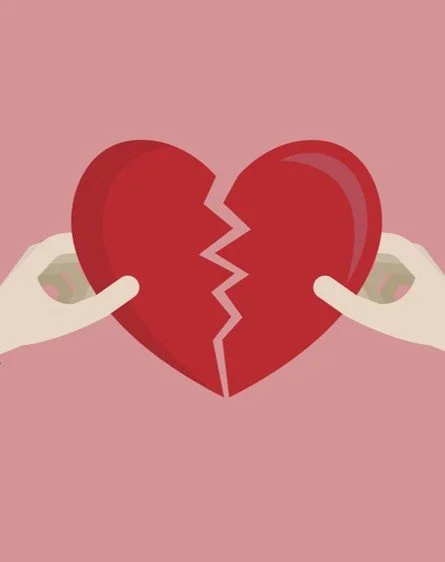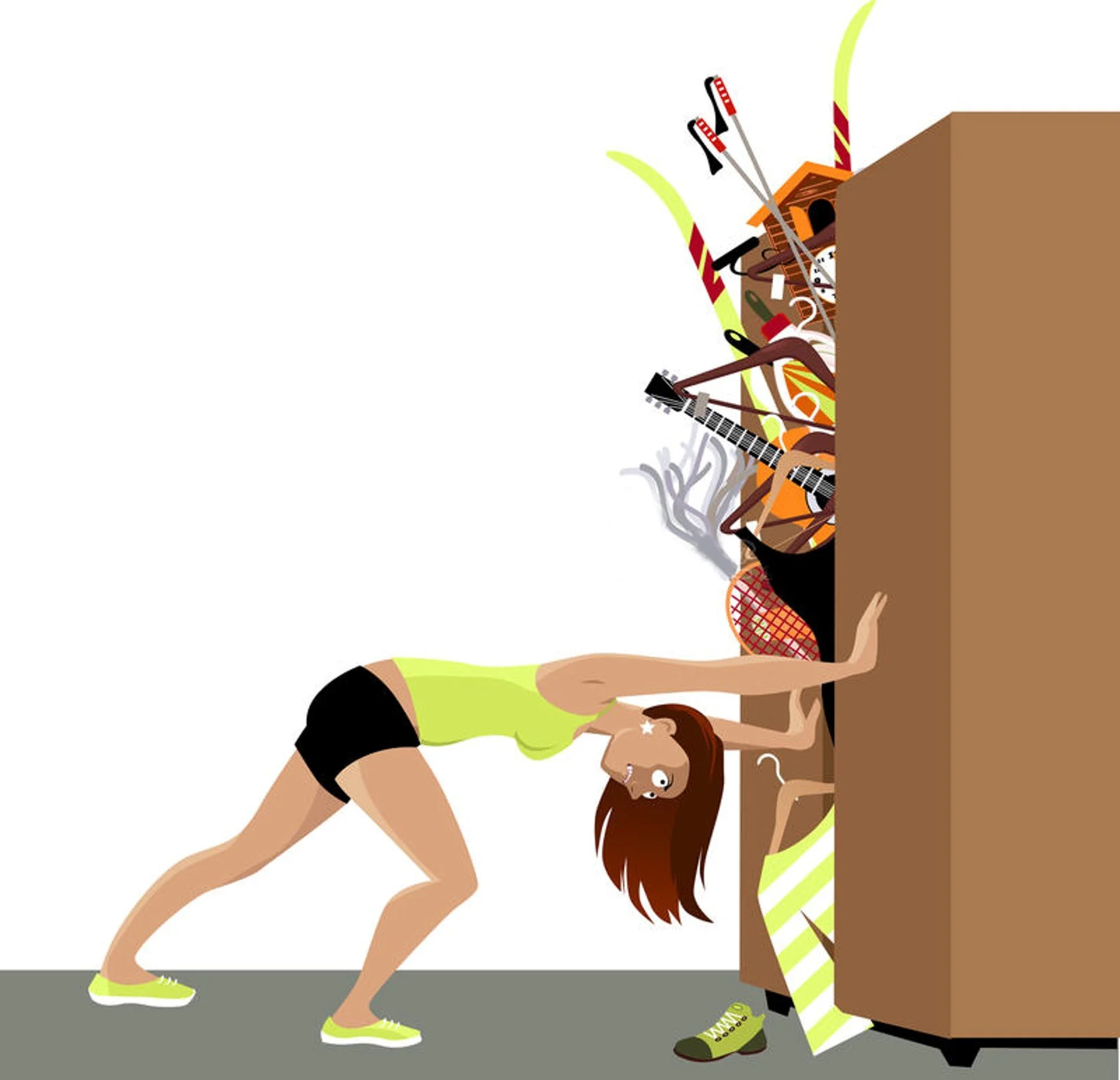Declutter to Clear Space: The Art of Clutter Control
In our fast-paced world, clutter has a sneaky way of creeping into our lives, occupying our spaces, and clouding our minds. From overflowing closets to cluttered desks, the accumulation of stuff can take a toll on our well-being and productivity.
In this article, we explore the art of clutter control, uncovering practical techniques and mindful approaches to decluttering. You'll discover the 7 common causes of clutter that affect both our homes and minds, enabling you to create more space, order, and peace in your life.
Is Clutter Managing You?
Are you feeling overwhelmed by your belongings? Is your living space more of a maze than a sanctuary? From stacks of random items on tabletops to items scattered about, even minimal clutter can disrupt your peace of mind and quality of life.
Clutter Disrupts Our Emotional and Mental Well-Being
Living in a cluttered environment can lead to increased levels of stress and anxiety, overwhelm the senses, and make it difficult to relax and unwind. A cluttered environment can impact self-esteem, feeling frustrated with oneself, and embarrassed to have guests over.
Clutter bombards the mind with excessive stimuli, making it challenging to focus on tasks or concentrate on important matters. Exposure to clutter for a long time can make us more likely to feel sad and anxious. When we constantly see things out of place, it can make us feel even more hopeless and stressed.
7 Causes of Clutter: More Than Just a Mess
Clutter isn't merely a collection of untidy things scattered about. It's a reflection of our mindset and habits, the underlying cause of chaos in our homes. Let's explore the top seven causes of clutter and how they impact our living spaces:
1) Clinging to Memories: The Emotional Connection
Often, our possessions hold sentimental value, serving as reminders of cherished memories. Letting go of these items can be challenging, but embracing clutter control involves recognizing that memories reside within us, not within our belongings.
2) Unresolved Emotions: Moving Beyond the Past
Objects associated with past relationships or significant life events can trigger complex emotions, leaving us feeling stuck in the past. Clutter control means finding a balance between honoring the past and creating space for new experiences.
3) Fear of Letting Go: Overcoming Attachment
The belief that we may need an item someday leads to hoarding behavior, cluttering our homes with unnecessary belongings. Clutter control requires us to let go of this fear, trusting in our ability to adapt to change and thrive with less.
4) Lack of Proper Storage: Organize for Success
Disorganized spaces lacking adequate storage solutions contribute to clutter accumulation. Implementing clutter control involves identifying catch-all areas and investing in storage solutions that promote organization and efficiency.
5) Excessive Consumption: Streamline Your Life
In a culture of consumerism, it's easy to accumulate more than we need. Clutter control means being mindful of our consumption habits, prioritizing quality over quantity, and letting go of excess to create a more streamlined living environment.
6) Digital Clutter: Clearing Virtual Space
Digital clutter can be just as burdensome as physical clutter, affecting our productivity and mental well-being. Clutter control in the digital realm involves organizing files, photos, and emails to streamline digital workflows and reduce mental clutter.
7) Habits from Childhood: Shifting Your Perspective
Our upbringing shapes our relationship with clutter, influencing our beliefs and behaviors. Clutter control requires us to examine and shift the perspective we've inherited, cultivating habits that promote organization and simplicity.
Take Action
To create a transformation in your life and living space, Do the following tasks:
1) Remove one attachment piece from anywhere in your home.
2) Remove one object from your home that holds painful memories.
3) Let go of one someday I will need this peace, even if you feel you will lose money.
By understanding the root causes of clutter and implementing effective clutter control strategies, you can reclaim your space and create a home that nurtures peace of mind and well-being. Remember, clutter control isn't just about tidying up; it's about reclaiming control of your space and your life.
FAQ’s about Clutter Control
-
Clutter control is about managing and reducing the mess and excess stuff in our spaces to make them more organized and comfortable.
-
Clutter control is important because it helps reduce stress, improve productivity, and create a more pleasant living environment.
-
Break decluttering tasks into smaller steps, seek support from others, and practice patience and self-compassion throughout the process.
-
Misconceptions include thinking clutter is just physical objects, decluttering is a one-time task, and clutter only affects physical spaces.
-
Start by picking one small area at a time and sorting items into categories: keep, donate, discard. Focus on items you no longer need or use.
More… Home Life Design Articles: Get a Deeper Awareness of Home!
We have created simple articles that provide insights for TAKING ACTION with the changes you want at Home!
Click on Subject to Learn More:











